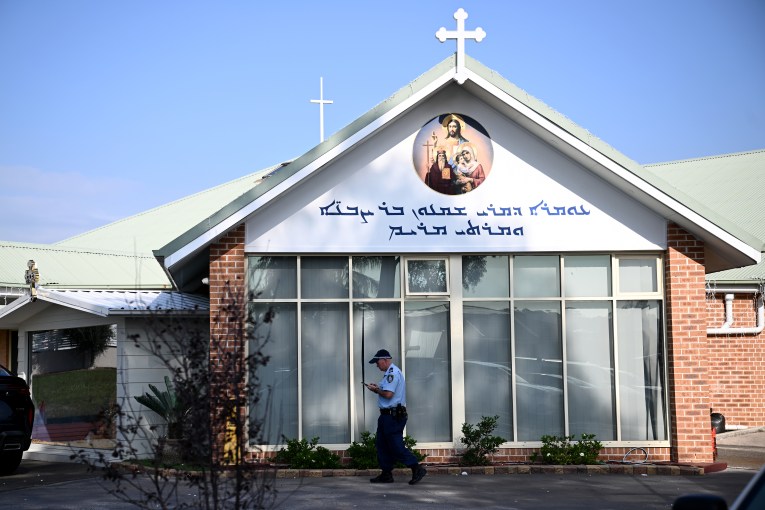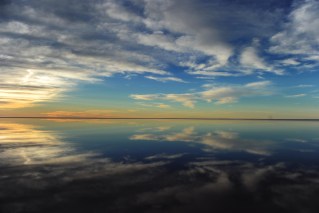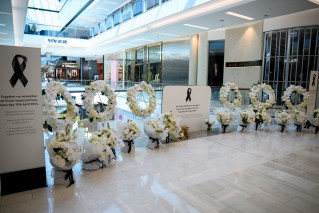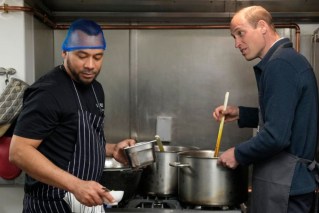Partial freedom but no return to Biloela: What next for Murugappan family?

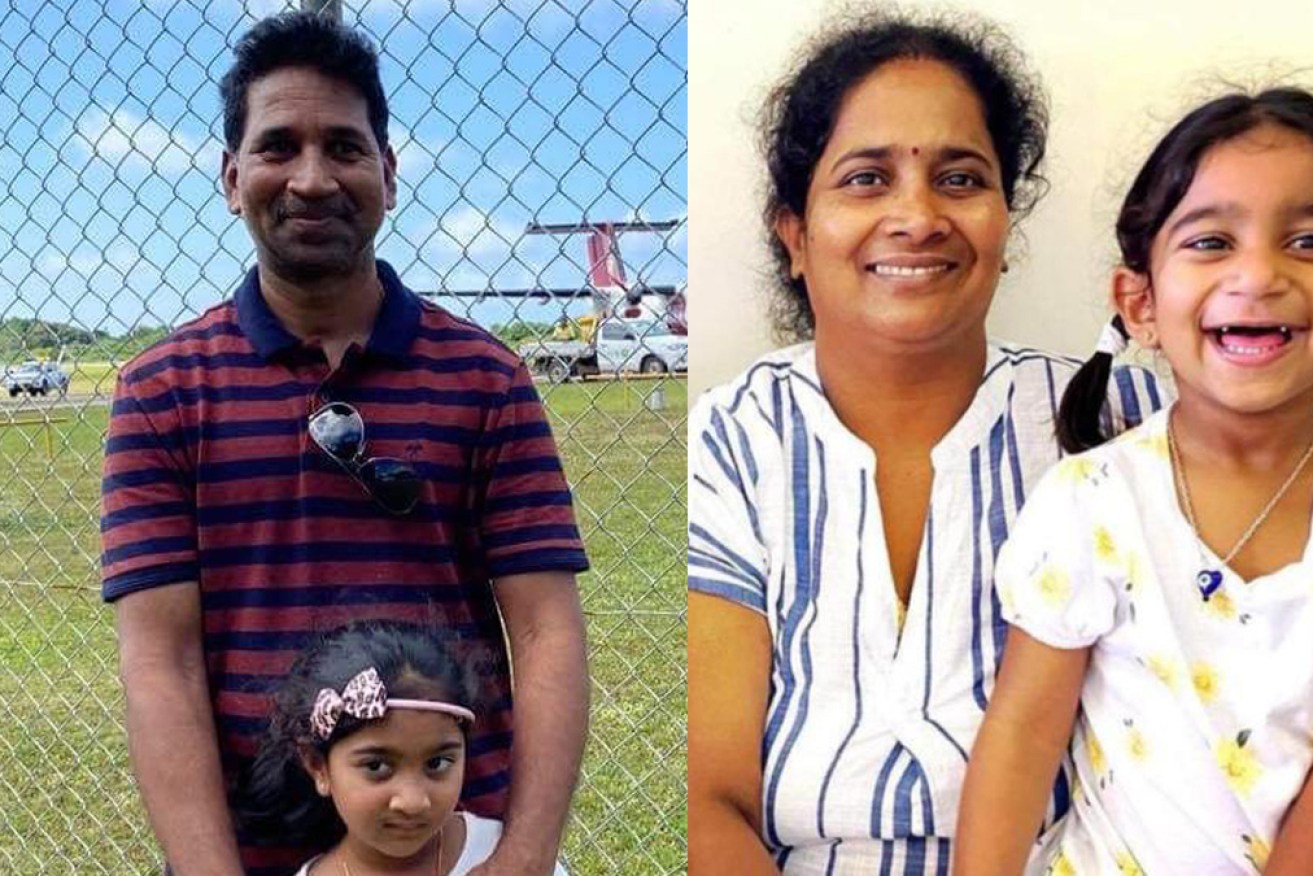
The Murugappan family reunited: Nades and Kopika left Christmas Island on Tuesday to meet Priya and Tharnicaa in Perth. Photos: Supplied
The Murugappan family are finally off Christmas Island – reunited in Perth on Tuesday night – but they’re still a long way from their Queensland home town of Biloela.
Immigration Minister Alex Hawke has relented slightly on the family’s situation, allowing them to leave the detention centres that were their home three years, and placing them into community detention in Perth.
But the Western Australian relocation is only temporary, Mr Hawke said, as the family continue their legal challenges for residency.
He has also not ruled out activating wide-ranging powers he wields, to simply grant them a visa if he chooses.
So what’s next for the Biloela family? What will its new chapter in detention look like, and what options remain alive for it to finally settle in Australia?
Off Christmas Island, into Perth
On Tuesday night, father Nades Murugappan and six-year-old Kopika boarded a flight from the Indian Ocean island where they had lived since 2019.
Their destination: WA, to join mother Priya and four-year-old Tharnicaa, who is in a Perth hospital after a serious infection.

Nades and Kopika Murugappan leave Christmas Island, bound for Perth. Photo: supplied
Mr Hawke earlier ruled the family would remain in community detention as ongoing legal challenges – a High Court appeal and an Administrative Appeals Tribunal case – played out.
He is also considering “several outstanding pathways” for the family to be granted visas.
“Bringing this family back together is the first important step in getting them home,” said family friend Angela Fredericks, organiser of the Home To Bilo support group.
Ms Fredericks later told the ABC it was a “huge letdown” that the family remained in detention.
Mr Hawke is not yet willing to intervene to grant them visas, saying he had concerns that doing so may encourage the restart of people-smuggling ventures.
He called the family “unlawful non-citizens”.
“We are not weakening our resolve on border protection,” Mr Hawke said.
“Anyone who has arrived by boat cannot permanently resettle in Australia … if they are not found to be owed protection obligations, the expectation is that they return home.”
Can they return to Biloela?
Mr Hawke said under his current ruling, the family must remain in Perth.
Dr Anthea Vogl, senior lecturer in law at the University of Technology Sydney, said there was no reason the family couldn’t undertake community detention in Biloela instead.
“The Minister has absolute discretion on where they are released into detention. There’s no need for them to be in community detention, they could be put on bridging visas or released,” Dr Vogl told The New Daily.
“There’s no reason for continued residence in Perth rather than Biloela with their community. It’s completely discretionary. Other than punishing this family further, I don’t see any basis for it.”
Aran MyIvaganam from the Tamil Refugee Council said the shift was insufficient.
“The government is basically sending this family from one detention to another detention,” Mr MyIvaganam said.
“This is not freedom. We will continue our fight until this family is fully freed. Their home is in Biloela.”
What is community detention?
Mr Hawke said the family would have access to “schools and support services” in Perth.
Jana Favero, director of advocacy at the Asylum Seeker Resource Centre, said it’s less restrictive than ‘closed detention’ inside a centre.
“It allows people to live in the community, which is great,” she told The New Daily.
Ms Favero said those in community detention usually have basic housing covered, including a small stipend – slightly lower than the JobSeeker welfare payment – to buy essentials.
But community detention subjects still face strict rules.
“The biggest restriction is no right to work or study for adults. Nades is keen to work. He was working in Biloela,” Ms Favero said.
Carina Ford, the family’s lawyer, detailed other restrictions.
“They can’t visit overnight to other places unless they seek approval. They can’t work. They can’t do voluntary work unless permission is given,” she said.
The parents may even have to inform the government if the girls stay home from school on sick days.
“It’s better than being in detention. This is a step in the right direction, but it’s not the great news everyone was hoping for,” Ms Favero said.
“It’s the least best option.”
What are the Biloela family’s remaining legal options?
The family is pursuing further legal action in hopes of courts finding Australian-born Tharnicaa is owed citizenship or protection.
Mr Hawke said there were “several outstanding pathways” for the family to potentially obtain visas, including legal appeals against previous decisions.
He also has power to lift a ‘bar’ restricting them from applying for other visa types, which he will consider “in due course”.
As minister, he has broad powers under Section 195A of the Migration Act to grant visas if he believes it’s “in the public interest”.
Ms Favero said this power had been used “hundreds of times” by the government in recent years.
Liberal MP Katie Allen, a paediatrician, urged Mr Hawke to use those powers. But he said it was still under consideration.
“I have a 195A submission in front of me and I can’t comment. I have to consider the merits,” he said.
Ms Ford said the Minister could “use his power at any time”.
“He doesn’t need to wait until the court proceedings are finished,” the lawyer said.
“There needs to be a shift in how the government looks at this case … it still is in the Minister’s hands to consider a fairer approach.”
But even with several legal avenues in front of him to grant the family residency, Mr Hawke didn’t rule out eventually deporting them.
“They have been on a removal pathway before this. That’s because they are unlawful non-citizens. If we don’t owe protection to anyone in this family, we don’t owe them protection,” he said.
“That is government policy.”
